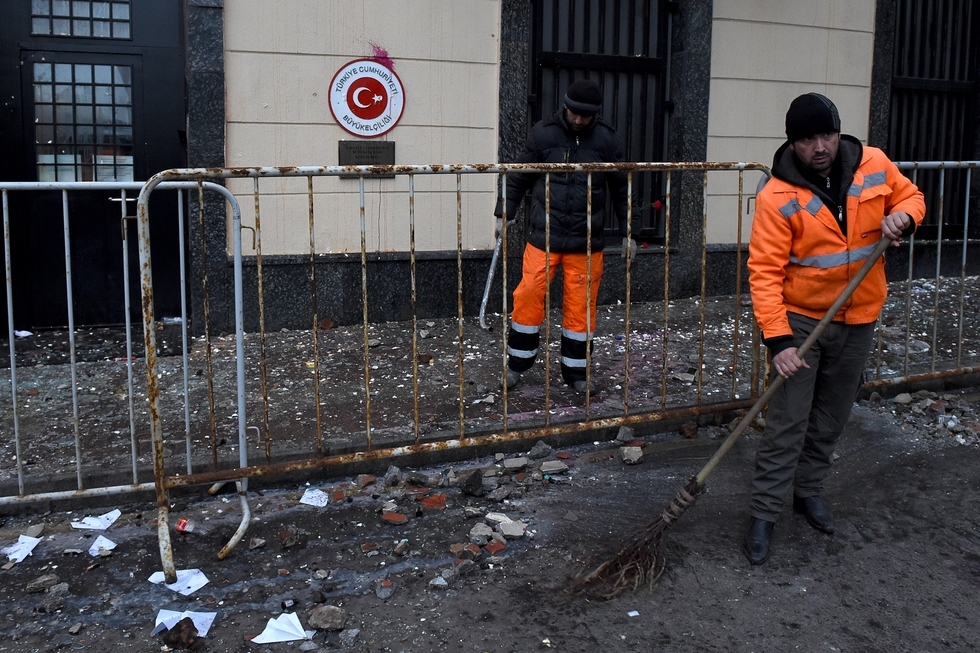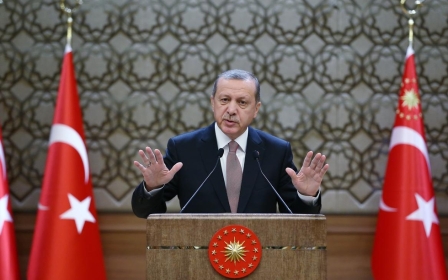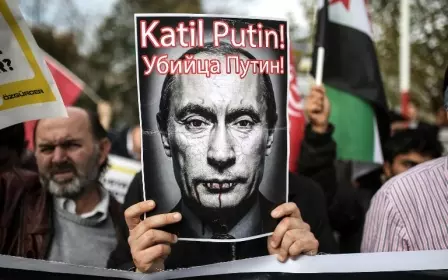What are the implications of the Russian-Turkish row on Turkey?

The row between Turkey and Russia over Turkey’s shooting down of a Russian jet violating its airspace shows no sign of abating. Turkish leaders have recently struck a conciliatory tone on the issue. While defending Turkey’s right to protect its borders, hence defending the legal basis of the shooting down of the Russian jet, they were keen on de-escalating the tension.
Prime Minister Ahmet Davutoglu repeatedly described Russia as a friend and stressed the importance of keeping channels of communication between the two countries. Likewise, President Erdogan has hoped to reach out to Russia to mend the ties. But Russia has thus far rebuffed Erdogan’s desire to either have a phone call with President Vladimir Putin or meet him personally during the UN climate summit in Paris on 30 November 2015. Moreover, the US, NATO and European countries’ call for de-escalation of the tension went unheeded in Moscow.
In contrast, Russia has steadily increased the level of the tension by each passing day announcing new measures to be taken against Turkey. On 28 November, Russia announced a new package of sanctions that it will impose on Turkey. These measures include restrictions on imports of some Turkish goods, a ban on charter flights between the two countries, an end to Russian tour operators selling trips to Turkey, prohibiting Russian business from hiring Turkish nationals, and reinstating the visa regime between two countries starting from 1 January 2016.
NATO–Russia dimension
Though this dispute plays itself out primarily between Turkey and Russia, it is not limited to just two countries. As Turkey is a NATO member and Turkish airspace is NATO airspace, this dispute inevitably has a NATO–Russia dimension too. Lastly, given that it was the Syrian crisis that is at the root cause of this incident, it is unavoidable that this row will have spill-over effects, if not direct ramifications, on the course of the Syrian imbroglio.
An analysis of the nature of relationships between Russia and Turkey reveals that Russia can hurt Turkey primarily in three areas: energy, tourism and Syria. Though other business activities (construction, vegetables and manufactured goods) between both countries are important, their impact on the Turkish economy will be marginal.
Energy
First, of three items, Russia has consciously refrained from openly threatening Turkey on energy. Two factors account for this. First, the energy agreements are internationally binding and include many strict measures (heavy penalties and fines) in case of non-compliance.
Second, the falling energy prices and heavy sanctions that the West put on Russia after the Ukrainian crisis rendered Russia economically vulnerable. Its energy sector is the cash-cow of the Putin regime and engine of the Russian economy.
Therefore, Turkey being dependent on Russia for almost 55 percent of its natural gas puts it in an uncomfortable position in the case of a row with Russia. Nevertheless, with Russia being almost exclusively dependent on energy for the functioning of its economy makes this dependency mutual, hence creating interdependency.
In addition, Russia can ill afford to be perceived as a prickly and irresponsible source country. Such behaviour will not only have an impact on Turkish–Russian relations, it will also send a very unpalatable message to the major customers for Russian energy, particularly those in Europe.
Thus, Russia is unlikely to utilise energy as a weapon in this dispute. All it can do is not to meet any extra energy demand that Turkey might have down the road and postpone or cancel the construction of the Akkuyu nuclear power plant project, which Russia is supposed to build. Neither of them can deal a heavy blow to Turkey.
Tourism
Second, Russian officials’ call to boycott Turkey for touristic purposes is set to harm the Turkish economy. Tourism, alongside automobile (spare parts and assemblage) and construction industries, are two main pillars of the Turkish economy. It generates significant revenue and jobs. Russians are only second to Germans in choosing Turkey as a holiday destination. In fact, close to four million Russian comes to Turkey as tourists annually.
If the officials’ call for a boycott finds receptive ears, this could hurt Turkey’s tourism industry. But even this will not be as significant as Russia might have expected. Given the security threats, Egypt is losing its tourism industry. Turkey is well-positioned to woo some of these tourists, for Turkey is offering what Egypt also offers: Mediterranean climate, sun, beaches and vast historical sites.
Syria policy
Third, Russia is likely to seek a more immediate revenge against Turkey by complicating its Syria policy. By increasing its military presence, deploying S-400 anti-air missiles, patrolling areas close to Turkish borders, Russia tries to de-facto terminate the possibility of a no-fly zone that Turkey has long lobbied for and recently received a non-enthusiastic approval from the US for imposing it. Recent Russian activities mean that it has imposed its own de-facto no-fly zone. Turning this around requires firm US and NATO support and involvement, which is not likely to be forthcoming soon.
Second, Russia tries to woo the Syrian Kurds affiliated with the Democratic Union Part (PYD) to more aggressively frustrate Turkey’s policy by attacking the Free Syrian Army groups within the framework of the Syrian Democratic Forces (SDF), the backbone of which is formed by the PYD’s military wing, the People’s Protection Units (YPG), and by pushing to cross the west of the Euphrates, which Turkey denoted as its red-line and has vowed to intervene if the YPG attempts to do so.
If the YPG crosses this line and takes control of the areas between Jarablus and Azez, it will connect its Afrin and Kobane cantons and create a contiguous self-rule enclave along the Syrian–Turkish border. Turkey regards this as a national security threat of high magnitude.
Continue conciliatory tone
Despite the risks of further escalation of the crisis with Russia, Turkey will do its utmost to prevent this from happening. Turkey, for the time being, is likely to continue with its conciliatory tone without offering any apology. It will not threaten Russia with any meaningful reciprocal trade measures because it imports natural gas almost exclusively from Russia.
Nevertheless, Turkey is unlikely to remain silent over Russia’s attempted fait accomplis in Syria, particularly the ones that Turkey regards as having a direct impact on its national security or fundamentally derailing its Syrian policy.
- Galip Dalay works as a research director at al-Sharq Forum and senior associate fellow on Turkey and Kurdish Affairs at the Al Jazeera Centre for Studies.
The views expressed in this article belong to the author and do not necessarily reflect the editorial policy of Middle East Eye.
Photo: Municipal workers collect broken glass and debris in front of the Turkish embassy in Moscow on 25 November, 2015 after an anti-Turkey demonstration (AFP).
New MEE newsletter: Jerusalem Dispatch
Sign up to get the latest insights and analysis on Israel-Palestine, alongside Turkey Unpacked and other MEE newsletters
Middle East Eye delivers independent and unrivalled coverage and analysis of the Middle East, North Africa and beyond. To learn more about republishing this content and the associated fees, please fill out this form. More about MEE can be found here.





